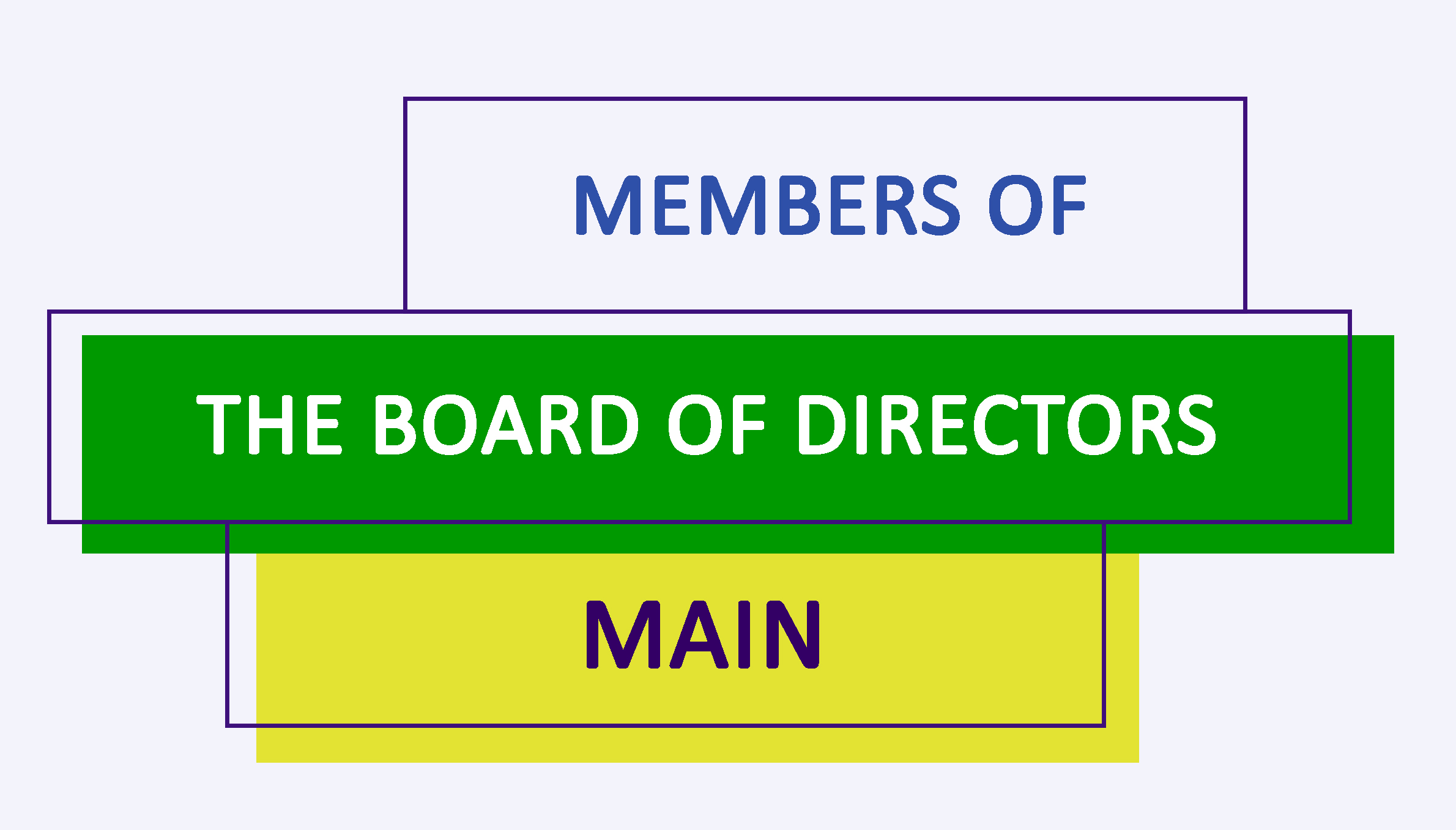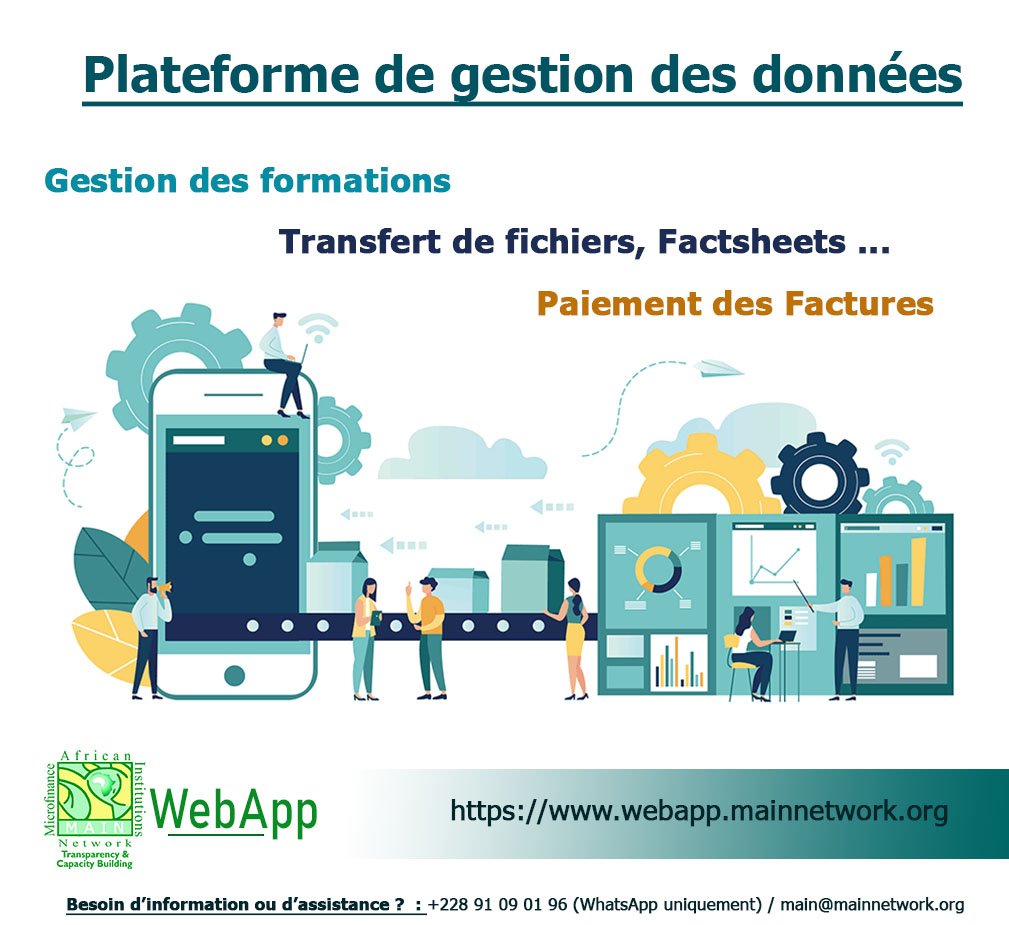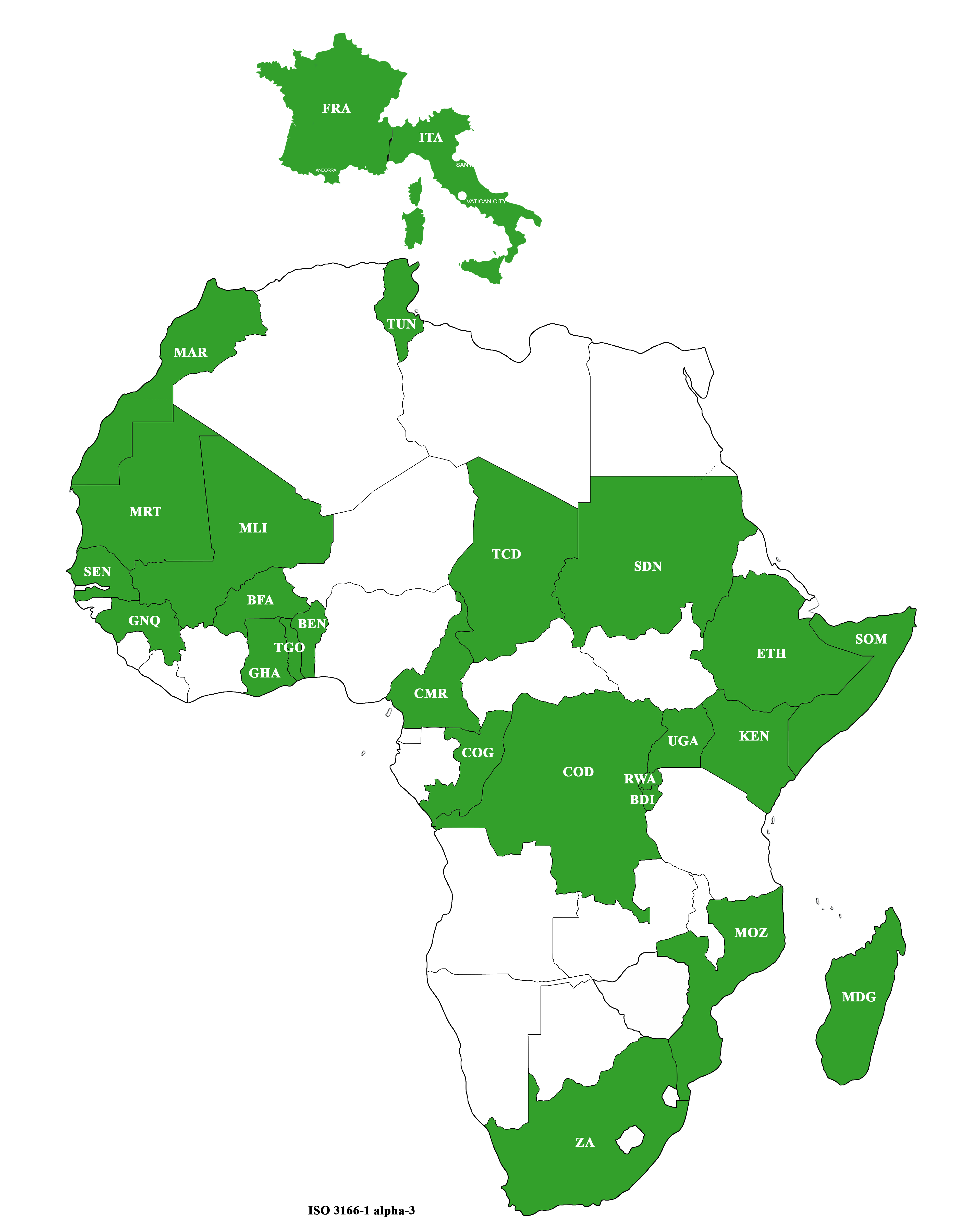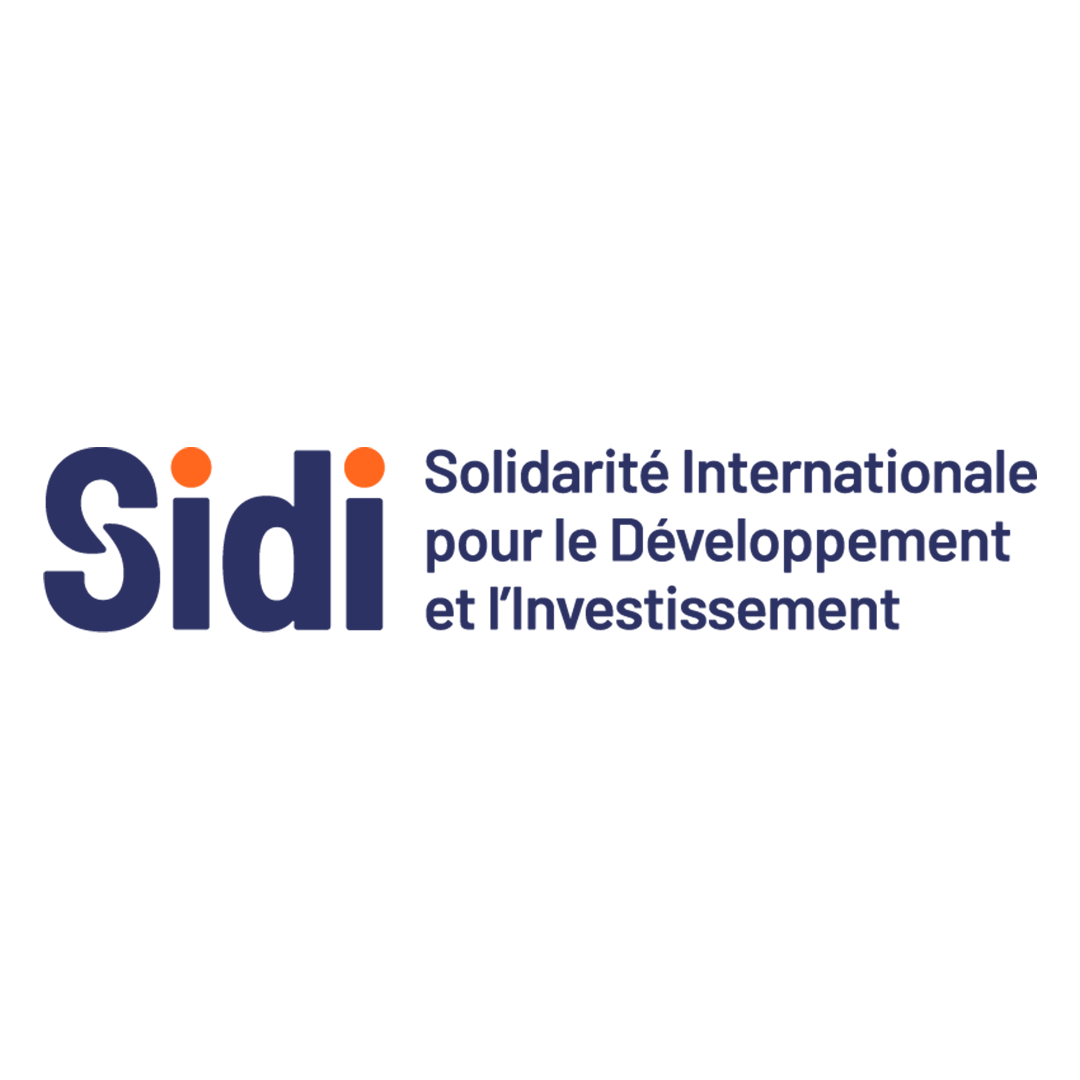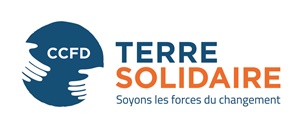How Can Microfinance Institutions Help Their Clients Build Climate Resilience?
Both financial and non-financial services will be crucial in helping MFI clients adapt to climate change
While half of the world’s population now live in areas highly vulnerable to climate change, impacts vary widely. The human and economic cost of floods, droughts and storms is 15 times greater in highly vulnerable regions than in the least vulnerable, according to the latest Intergovernmental Panel on Climate Change (IPCC) report. And while adaptation planning is now widespread, implementation is unevenly distributed, with significant gaps, especially in getting climate adaptation financing to those in most need. Research suggests that only 10 percent of climate finance from dedicated climate funds gets to the local level.
Why MFIs?
Conscious of these challenges, Opportunity International believes that microfinance institutions could be a key part of delivering climate resilience services to vulnerable populations. As the previous blog post in this series argues, MFIs are well-placed to promote climate change adaptation products and services, given the close mapping between the future incidence of climate impact and the microfinance sector footprint across the globe. In addition, financial services are already a key tool for enabling resilience, and many large MFIs are the key provider of finance and other services such as training and agricultural extension services for many of the communities they serve.
Our experience with the COVID-19 pandemic showed how MFIs can perform a key role in building resilience to severe shocks among developing country communities. Since the start of the pandemic, Opportunity’s MFI partners in India, Indonesia and Nepal have provided training on COVID-19 prevention and management to 15 million people, while our Small Finance Bank partners in India ran over 30,000 vaccination camps, vaccinating over 3.8 million people. With this kind of reach to local communities, MFIs are in a position to play a stronger role in promoting climate adaptation and resilience than what is currently offered.
The role of MFIs
So, what can MFIs do to support their clients in the context of climate change? First, we have to understand what clients really need. Recent research out of Rwanda, supported by Opportunity, is beginning to give us an idea. As our partners at Glasgow Caledonian University and the University of Rwanda discussed in the first blog post of this series, the research suggests scope for MFIs to make a much greater contribution to resilience by:
- Adapting policies, operational guidelines and practices to take into account climate change.
- Broadening the purpose of loans, particularly in the agriculture sector, and offering more flexible loan terms.
- Broadening access to financial services and providing training on climate mitigation and adaptation strategies, especially simple, cheap technologies and practices, for example in the management of water resources.
- Exploring new sources of financing from climate adaptation funds to support these changes.
MFIs can provide tailored, expanded and additional financial services
Our research in Rwanda and feedback from our Farmer Service Agent network indicates a few different ways in which existing financial products could be tailored to increase climate resilience:
- Introducing loans with longer terms (three years or more), to enable investment in assets where the return on investment does not accrue in the regular agricultural crop cycle: e.g., irrigation systems, sowing and harvesting equipment, post-harvest storage, transportation, tree-planting, and switching to new and more sustainable crops.
- Providing small, productive, agricultural microloans targeted at financially excluded and vulnerable groups of farmers, removing restrictions to lower income groups and farmers who are not part of existing farming cooperatives.
- Bundling loan and insurance products.
- Redesigning various aspects of loan products, such as disbursement, schedules, interest and penalties, in order to facilitate new products and ensure that existing loans are effective. For example, a recurring theme of our research is that reducing delays in disbursing credit is critical to ensure successful planting and harvesting.
At Opportunity, we are also exploring institutional disaster risk insurance to facilitate post-disaster emergency lending. Our partners in India are addressing supply and demand side constraints to livestock insurance with finance and technical assistance from the InsuResilience Investment Fund. And we are working through our Farmer Service Agent network in Africa to expand access to lending and low-cost insurance for smallholder farmers.
MFIs can provide non-financial services
Through their outreach in rural communities, MFIs can also provide non-financial services that aim to help clients build resilience and adapt to climate change, such as:
- Short and long-term weather forecast information.
- Market linkages and price regulation.
- Training to build the knowledge and skills needed to deal with erratic climate or climate change, such as agronomist advice on agricultural techniques or more sustainable agricultural strategies.
Through our Farmer Service Agent (FSA) network in Africa, we are expanding climate-smart technical trainings in planting techniques, irrigation, pesticides, crop rotation and storage. FSAs help farmers access accurate data on market prices, weather and yield forecasting via smartphone. FSAs also set up partnerships with agribusinesses to facilitate group purchase agreements for agricultural inputs, and sales agreements with local buyers.
Support needed for MFIs
To implement many of these strategies, MFIs will require additional and new types of finance, or even grant funding for the non-financial services. Patient capital and/or blended finance will be needed to extend loan terms for longer term investment and provide credit to more excluded and higher risk groups.
Additional finance alone will not be sufficient, however. A key element of these solutions is better understanding the needs of clients and communities at a local level. Beyond providing training and agricultural inputs that fit the local environment, Opportunity International is committed to designing solutions that empower local actors in climate solutions, and we are a signatory to the Principles for Locally Led Adaptation. Our call to action, therefore, would be to encourage FSPs to seek better understanding of client needs at a local level.
We also encourage investors and funders to recognize the advantageous position of MFIs to deliver financial and non-financial services to some of the most climate vulnerable stakeholder groups, and to take into consideration that many resilience needs require solutions that would be economically unsustainable under the standard microfinance model. Funders should provide patient capital, while encouraging partnership and a locally tailored approach.
source: findevgateway.org
Digital Innovation: Three Key Lessons to Improve the Resilience of African MFIs and Their Clients
Takeaways from the African Microfinance Week (SAM) on overcoming the challenges and risks associated with digital transformation
If there is one thing that has become obvious during the COVID-19 pandemic for the financial inclusion sector, it is the need to accelerate the digitalization of financial service distribution channels. Of course, this is easier said than done. The path is replete with challenges, from managing the new cyber risks involved to establishing partnerships among the diversity of actors with different digitalization strategies. So how can we ensure the success of digitalization while maintaining manageable risk levels?
The African Microfinance Week (SAM), which took place in October 2021 in Rwanda, was a unique opportunity to consider this question, share lessons learned and discuss the challenges of digitalization and its role in improving the resilience of the financial inclusion sector and its clients.
During this event, I had the pleasure of moderating the session, “Digital innovations for the resilience of inclusive finance institutions and clients in Africa: actors, strategies, collaborations and challenges.” Along with Olivier Mugabonake (CEO of ADFinance and President of the Fintech Association of Rwanda), Jean-Louis Perrier (Head of the Africa Cybersecurity Resource Center for Financial Inclusion (ACRC) program and co-founder of Suricate Solutions), and Ivan Ssettimba (Head of the Africa Regional Office of the Alliance for Financial Inclusion), we discussed the challenges for their institutions, the main regulatory and political bottlenecks that limit the adoption of digital solutions by low-income segments of the population, as well as the rise of fraud and cybersecurity issues.
From the rich discussion with the panelists and the audience, I would like to share three key takeaways.
1. Adoption of digital channels by MFIs is a necessity.
A consensus emerged during our panel that digitalization is not a luxury or just an option for MFIs, but rather a vital necessity due to the competition from new players. At the same time, MFIs must preserve their objective of contributing to poverty reduction for low-income people. Moreover, while adopting digital tools and channels to deliver their products and services, MFIs must continue to offer productive credit in all sectors, including agriculture. They must avoid aligning themselves with the offer of fintechs and mobile telephone operators, which instead offer consumer credits that cannot meet all their clients’ needs.
So how to balance these ongoing objectives with the move towards digital? MFIs’ digital transformation requires financial resources for investments in technology. It also requires human resources to define the strategy and identify and establish partnerships with a long-term perspective to ensure the viability of digital offers and their adoption by customers. Donor support will be essential to strengthen MFIs’ resources and capacity to carry out this transformation, especially for smaller institutions that do not benefit from the support of an international group.
2. Jurisdictions must adapt the regulatory and legal framework to facilitate digitalization.
During the pandemic, many countries and regions, including the Economic and Monetary Union of West Africa (UEMOA), introduced temporary measures to ease customer identification requirements for opening accounts, especially mobile money. These measures enabled remote transactions when branches were closed and social distancing was required. Now, two years later, we should assess the impact of these measures and consider adapting them for the long term to enable greater adoption of digital financial services by low-income people who, in many cases, do not have the documentation required to open an account. To make these measures more permanent, MFIs would need to take a risk-based approach, with well-defined balance and transaction limits tailored to the needs of MFI clients who have low money laundering and terrorist financing risks. Such provisions would promote the financial inclusion of the most vulnerable populations, who would then benefit from appropriate financial services in order to strengthen their resilience to shocks such as the pandemic.
Another regulatory aspect highlighted during the panel concerns making the USSD channel, used for sending SMS messages, more accessible to promote financial services which are available on basic telephones. Increasing access to the USSD channel requires an affordable price policy, which often requires supervision from the regulator. For example, in Togo, the telecommunications regulator has set a very low price for the USSD session at $0.005.
3. Digitalization must be accompanied by cyber-resilience to control risks.
The pandemic pushed many inclusive finance institutions to adopt digital solutions quickly and without enough preparation, especially when it comes to cybersecurity. While the new financial services and digital channels have indeed contributed to the resilience of populations and institutions, they also bring more risks for institutions and customers as hackers take advantage of increased opportunities. Improving cyber resilience is therefore an urgent priority.
Human and financial resources dedicated to cybersecurity are often limited. We need to collaborate at the sector level by sharing information and best practices in terms of cybersecurity, especially for small and medium-sized institutions. Moreover, in the face of cybercrime without borders, the response must be organized at the regional level, as many countries do not have a solid cybersecurity ecosystem. For example, the African Cybersecurity Resource Center for Financial Inclusion (ACRC ) is a public-private, non-profit consortium funded by the African Fund for Digital Financial Inclusion (ADFI) and supported by the African Development Bank (AfDB) with the aim of fostering the collaboration of the entire African financial sector, including central banks, banks, fintech, MFIs, and microinsurance companies.
As we can see, there are many challenges that require both reforms and resources. Collectively, all stakeholders must support inclusive finance institutions on their path towards digitalization, particularly on complex but essential issues such as the fight against cybercrime, to ensure the resilience of these institutions and their customers.
source: findevgateway.org
Test of incubators for VSEs-SMEs of Ecological and Social Transition (EST) by MAIN with two member MFIs
As part of the project entitled “Inclusive finance in Africa facing the challenges of ecological and social transition: challenges and capacity building of African actors through an innovative and adapted training offer” co-financed by AFD, Terre Solidaire Foundation and MAIN network, it is planned to test an incubator model with the members of the network. This activity is part of result 1 of the project where members improve and take into consideration the issues related to the effects of climate change and the promotion of Ecological and Social Transition (EST) in their offer. For this, MAIN has recruited a consultant to support the implementation of incubators with 2 member MFIs in order to develop new support methods for the creation of small and medium-sized enterprises wishing to engage in activities that contribute to the EST: renewable energies, energy efficiency, waste recycling, etc.
MUTUAL ASJD and WAGES have been selected by MAIN for this pilot phase of this innovative project involving dynamic women and young people with an entrepreneurial spirit, motivated to set up their own businesses or diversify them with the theme of ecological and social transition.
Several criteria allowed the selection of these micro entrepreneurs. Among others, we can note: gender, target area, area of intervention, State of mind (Motivated and ready to take up the challenge of entrepreneurship, having a taste for the entrepreneurial spirit, ready to follow training to perfect it), Financing and Capacity of the entrepreneur.
At the end of the evaluation of the 10 MSMEs, two per institution are qualified for the rest of the process. They are specialized in the following areas:
- Organic pineapple processing into juice and dried fruit
- Processing and merchandising of agricultural products
- Plastic waste processing
- Sale and installation of solar equipment
To carry out this project, MAIN will be responsible for:
- Support MFIs in the context of exchange and advice for the proper monitoring of the project with companies
- Support MFIs by directly providing training to beneficiaries but in the presence of resource person(s) from the MFI on the themes necessary for the smooth running of the project so that this person(s) resource(s) can do the post-training follow-up;
- Accompany and monitor companies and support them with advice, in collaboration with the MFI, according to the Technical Assistance plan.
Following a participatory diagnosis made on MSMEs, the following themes on which the TA will focus have been selected and are:
- Setting up a Business Plan
- Analytical operating accounting
- Digital Marketing and EST
In addition to the classic themes that suit them, they must set up or diversify their companies in the innovative theme “Ecological and social transition”
Scheduled for a period of 18 months, the pilot phase of the project will end on December 31, 2022.
At the end of this pilot phase, MAIN should be able to acquire expertise in setting up an incubator/accelerator, have support modules and training courses tested for the support of micro and small businesses and capitalize on the experience acquired in order to be able to duplicate it in other countries where MAIN operates. The capitalization of the experience will make it possible to highlight the lessons learned as well as the difficulties encountered during this experimental phase of the incubator.
For MFIs, it is an opportunity to acquire knowledge and skills in the design, creation and financing of products and services of an ecological nature.
To formalize the process, four tripartite agreements MAIN-MFI-MSME were signed on June 1, 2022 at MAIN’s premises in the presence of the General Managers of the MFIs and the Managers of the four partners involved in this project.
